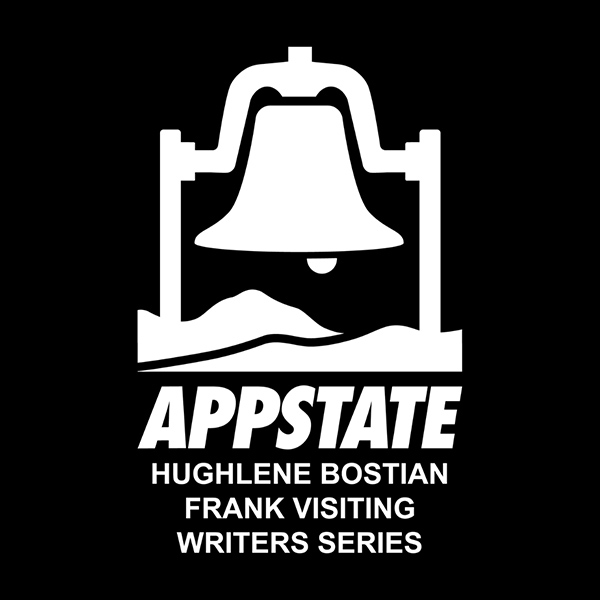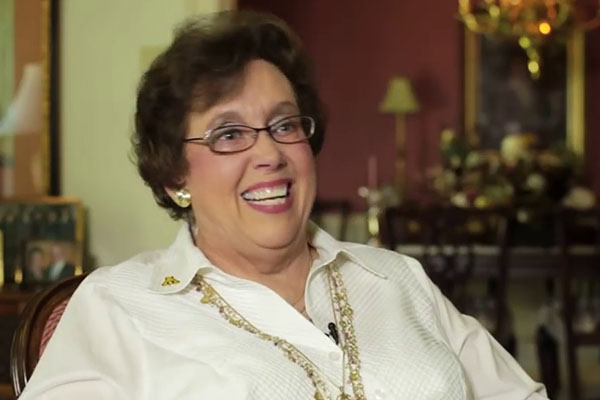Editor's Note: Hughlene Bostian Frank ’68 and her husband, William “Bill” Frank, were longtime friends and supporters of Appalachian State University. Hughlene served on a number of university boards, including the Board of Trustees, and was a 2013 recipient of the Appalachian Alumni Association’s Outstanding Service Award. Together, Bill and Hughlene served on the College of Arts and Sciences Advancement Council for a combined 39 years. Appalachian’s Hughlene Bostian Frank Visiting Writers Series was named in honor of Hughlene in 2004.
In May, Hughlene and Bill died in a home fire in Greensboro. The Appalachian Community continues mourning their loss and celebrating their lives.
Appalachian Chancellor Sheri Everts, remembering Hughlene, said, “She often remarked that Appalachian gave her the confidence to know she had something to offer to the world. Anyone who knew Hughlene can easily say she offered and gave of herself generously anywhere and anytime she believed she could make a difference. She had tremendous pride in being an Appalachian graduate, cared deeply about our students, and she has left a lasting legacy on our campus and beyond.”
Poet and Appalachian professor Joseph Bathanti, a friend of Hughlene’s and the former director of the series that bears her name, recalled, “Hughlene was always herself: candid, genuine, witty and loving. We’re so proud, so grateful, to display behind the podium — each time we have an author on campus — that big black and gold banner proclaiming ‘Hughlene Bostian Frank Visiting Writers Series.’”
The following article about Hughlene Frank and the Visiting Writers Series, which was being prepared for publication at the time of the Franks’ deaths, is Appalachian’s last interview with the university’s friend and patron.
BOONE, N.C. — Hughlene Bostian Frank ’68, the eponymous patron of Appalachian State University’s Visiting Writers Series, maintained that while she was an avid reader of nonfiction, her forte was math. She appreciated logic; the certainty of figures; equations that add up. And, in her estimation, the Visiting Writers Series computed.
Through the series — which brings regionally and nationally distinguished authors to the university’s campus throughout the year to present lectures and discuss their work — students “can explore ideas and opportunities they never considered,” she said.
“That’s why, when Appalachian asked, I was honored to support the program,” she continued. “Appalachian broadened the circle for me and gave me the chance to meet others from different walks of life. I want to do the same for the students.”
Joseph Bathanti, the McFarlane Family Distinguished Professor in Interdisciplinary Education and past director of the series, said, “Hughlene was more than the patron of the series — though it’s important to say her extraordinarily generous role from that perch remained inestimable.
“She was also a staunch and loving friend of the series and the faculty who administer it and, more than anything, someone who cared very deeply about Appalachian students and the sweeping benefits they derive (from the series),” he added.
‘What will (Appalachian) bring?’
Frank recalled her trip up the mountain as a first-year student in 1965: “I saw the campus for the first time since being accepted and wondered, ‘What will this bring?’”
Frank was a 2013 recipient of the Appalachian Alumni Association’s Outstanding Service Award, as well as a past member of Appalachian’s Board of Trustees, the Appalachian State University Foundation Board, the College of Arts and Sciences Advancement Council and the Beaver College of Health Sciences Advisory Council.
She grew up in the small town of Landis, where her world was centered on “our home, our faith, our school,” she said. There, she focused on her academics, played basketball, sang in the church choir and enjoyed her classmates and friends.
Naturally gregarious, Frank said she routinely sought out those who appear to be standing on the fringe. “I always gravitate to the people who are standing alone,” she said. “I say, ‘Don’t let inferiorities or lack of experience hold you back.’”
She encouraged students to persevere and seize every opportunity. “Had I stayed home and not come to App? Well, who knows what would have happened,” she said.
‘I like things that touch lives’
Susan Weinberg, associate professor in Appalachian’s Department of English and coordinator of both the Visiting Writers Series and the creative writing program, said when Frank stepped in, in 2013, the series was underfunded, and creative writing faculty hoped to find a donor who would supplement the university’s annual support and set the series on a strong foundation.
Changes in funding models from state sources led Appalachian’s University Advancement to ask Frank to match a National Endowment for the Humanities grant that was funding the Appalachian studies program, Weinberg explained.
“Hughlene liked something that changed the student experience. She was looking for impact and what would affect the students,” she said.
“The Visiting Writers Series seemed the perfect project for me to support,” Frank said. “I like things that touch lives.”
Weinberg confirmed the series does touch lives, particularly young writers.
“I think it personalizes the literary experience for them. They can see there is someone who started out as they did, accomplished a piece of writing that moves them,” she said. “They hear that writer’s journey and see there’s a way to get there from being a young writer.”
Bathanti concurred: “Not only is the series one of the oldest and most respected writers series in North Carolina,” he said, “it also has become one of the key teaching tools in the Department of English’s creative writing concentration. Seeing and interacting with those visiting writers up close changes the lives of young writers and provides face-to-face encouragement and inspiration.”
According to Bathanti, while at the series’ craft talks and readings, Frank would “set aside time to talk to students; she’d find out where they were from, their majors, what they read and write. She let them know how much she cared about them and shared her own memories of being at Appalachian. She also interacted with the visiting authors, which always surprised and delighted them.”
Frank said it was meaningful to see how the students reacted and she, like them, had personal epiphanies.
She spoke of author Robert Goolrick, who talked to students about traumas in his past. “When his talk was over, I’ve never seen such a line to talk to him. He gave the students comfort,” she said.
She recalled a visiting writer “who talked about the rooms in her house and what happened there. How they sat around the kitchen table and made homemade ice cream on the patio. That was the era I grew up in,” she said. “It made me think of the things that happened in the rooms of my home … my family is very important to me,” said Frank, who teared up at the memory.
Frank also praised the hard work of Appalachian’s creative writing program — and the people who believed in the series and helped it grow. “They need to be recognized,” she said. “They do an amazing job. They are like family.”
What do you think?
Share your feedback on this story.
About the Department of English
The Department of English at Appalachian State University is committed to outstanding work in the classroom, the support and mentorship of students, and a dynamic engagement with culture, history, language, theory and literature. The department offers master’s degrees in English and rhetoric and composition, as well as undergraduate degrees in literary studies, film studies, creative writing, professional writing and English education. Learn more at https://english.appstate.edu.
About the College of Arts and Sciences
The College of Arts and Sciences (CAS) at Appalachian State University is home to 17 academic departments, two centers and one residential college. These units span the humanities and the social, mathematical and natural sciences. CAS aims to develop a distinctive identity built upon our university's strengths, traditions and locations. The college’s values lie not only in service to the university and local community, but through inspiring, training, educating and sustaining the development of its students as global citizens. More than 6,800 student majors are enrolled in the college. As the college is also largely responsible for implementing App State’s general education curriculum, it is heavily involved in the education of all students at the university, including those pursuing majors in other colleges. Learn more at https://cas.appstate.edu.
About Appalachian State University
As a premier public institution, Appalachian State University prepares students to lead purposeful lives. App State is one of 17 campuses in the University of North Carolina System, with a national reputation for innovative teaching and opening access to a high-quality, cost-effective education. The university enrolls more than 21,000 students, has a low student-to-faculty ratio and offers more than 150 undergraduate and 80 graduate majors at its Boone and Hickory campuses and through App State Online. Learn more at https://www.appstate.edu.















